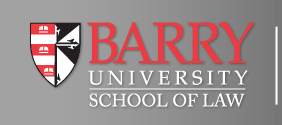Article Title
Abstract
Continuing the Great Work: A Tribute to Thomas Berry
by Patrick Tolan
Profound scholar and author, Father Thomas Berry, recognized and related human destiny to the destiny of the universe. In his book, The Great Work: Our Way into the Future, and in his teaching, Berry challenged humanity to enter into a new era in harmony with the universe. This article is a tribute to Thomas Berry, recognizing the importance of his contribution to a new and emerging field of Earth Jurisprudence and launching an Earth Jurisprudence and Environmental Justice Journal that will afford thinkers and scholars the opportunity to continue his great work.
Like Thoreau and Aldo Leopold, Thomas Berry shared a profound respect for the Earth and advocated a deeper understanding of the need to treat the Earth and her bountiful resources prudently and ethically. To these core values, Berry added additional wisdom, insight, and perception that captures the messages of earlier authors, but adds the dimension of spirituality. Through the lens of decades of religious studies of the East and the West, Native and indigenous traditions and established religions, Berry saw the tapestry of spiritual truth in creation and extended this understanding to the necessary interplay of humans as but one constituent element which ought to function in harmony with all of the universe. Recognizing the laws of nature trump the laws of man is critical to reorienting behavior to what is ultimately sustainable and eternal. While earlier writers acknowledge a need for a healing approach and a need for laws that both heal and restore balance, Berry understood that these needs are intrinsic as well as communal; that each individual conscious self was part of a greater universal self.
Berry asks us to re-envision human-Earth relations as we enter an Ecozoic Era where humans may not simply rely on the regenerative powers of the Earth herself, but also must engage in a cultural paradigm shift toward a viable human situation on a viable planet. Continuing the great work requires exploring and developing these opportunities for conversion. Reinventing law and governance systems so that all beings could be legally protected as subjects and not objects was at the core of his thinking. More specifically, in the field of law and jurisprudence, Berry calls for a paradigm where inherent rights exist not just for people, but “the inherent rights of the natural world are recognized as having legal status.” The challenge then, for an Earth Jurisprudence, is identifying a legal framework conducive to a mutually enhancing Earth-human relationship.
While this humble tribute can’t approach the eloquence of Thomas Berry, whose prose was “more akin to that of poetry, art, myth, or storytelling,” it can help to introduce those who don’t know Thomas Berry to his life and work, and can serve to remind those who knew him of what made him so special. It is fitting not only to reflect upon and pay tribute to his profound contributions, but also to consider pathways forward. The best way to honor Thomas Berry’s teaching is to continue in his great work. As Thomas Berry explained, “[a]ll creatures of Earth are looking to us for their destiny. Among these are our children and grandchildren, who depend on our decisions for the sustenance and flourishing of the life systems of the planet. This remains one of our primary challenges in the twenty-first century.”
Recommended Citation
Tolan, Patrick. E. (2011) "Continuing the Great Work: A Tribute to Thomas Berry," Environmental and Earth Law Journal (EELJ): Vol. 1 : Iss. 1 , Article 1.
